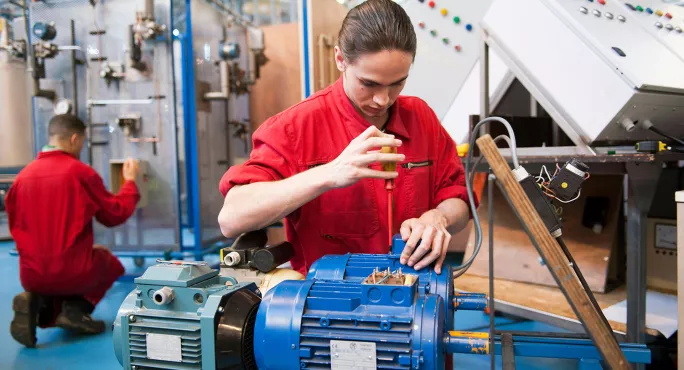- Home
- ‘Female engineering apprentices are not “a breed apart”’
‘Female engineering apprentices are not “a breed apart”’

This is the “Year of Engineering”. In fact, we’re three quarters of the way through the “year” - a Department of Transport-led initiative that celebrates the importance that engineering has in the UK’s economy and future.
The flip side is that it also highlights a longstanding failure to really communicate what engineering really is to young people. We haven’t needed a ‘Year of Finance’ or ‘Medicine Year’, because, by and large, young people have a sense of what these things are and where they lead. Even more so for those careers that appear simply to be a direct progression from the subjects studied at school. This negative effect is further magnified for girls because of the logical association with engineering as a masculine domain.
Although women are under-represented in many technological areas, this is stark in engineering - particularly when we look at the number of female engineering apprentices. Women account for just 8 per cent of female engineering apprentices. This is not simply an issue about inequalities in individual pay, but this gender imbalance has significant implications for the supply of skills into the economy.
Pressing need for change
Arguably more important is the fact that as technology becomes unstoppably embedded in our lives, the people with the knowhow to design and maintain our technological world should be representative of the society in which they live. In a week where Amazon has followed in the footsteps of Apple to become the second company in history to be valued in excess of $1trillion, there is a pressing need to ensure that the 8 per cent of women engineers changes very soon, to assure technological representation alongside the continued striving for political and cultural equality.
With this in mind, the Institution of Mechanical Engineers (IMechE) set out to understand why women make these choices. In 2017, IMechE published the ‘Stay of Go’ study whose findings echoed aspects of the #MeToo campaign, exposing institutional features of some companies and undergraduate courses that made female engineers in early career feel that they had to “shape up or ship out”.
But the reality is that young women do choose engineering, including through selecting an apprenticeship. So what, if anything, is special about them and what might we learn from this group that could help inform the many initiatives designed to make engineering more appealing to girls in schools and colleges? These questions formed the rationale for a piece of research led by IMechE in partnership with the Gatsby Charitable Foundation and carried out by ICM Unlimited.
Not ‘a breed apart’
What we found was that female engineering apprentices, though something of a rarity, are not “a breed apart”. By exploring their attitudes, beliefs and values we found that there was a fairly even distribution between four personality types that emerged in the study, but women who chose engineering - especially through an apprenticeship tended to make this decision later than their male peers. Surprisingly to some, but not perhaps to many design and technology teachers, young female engineers are as likely to be arts and crafts hobbyists as they are to be interested in tinkering with machinery.
Of the four types:- ambitious aspirers (studious yet practical), intellectual independents (free-thinking theorists), persistent pragmatists (practical problem-solvers) accidental all-rounders (creative and open); the final two were the greatest source of apprentice engineers.
Future engineering talent
What is exciting about this work is that it offers some new insights into how schools could consider contributing to providing future engineering talent. While maths and physics will of course continue to be route one for engineering, there are things that can be done especially if we want to attract more accidental all-rounders to enter this creative and fulfilling profession(s).
And with renewed status being assigned to technical training (engineering apprenticeships have always been associated with high quality) alongside new types of degree courses - such as the New Model in Technology & Engineering in Hereford, there are opportunities to ensure that women and others who are not traditionally seen as engineering archetypes to play a more prominent role in the imminent industrial revolution.
Engineering has a long tradition of offering talented people from all sorts of backgrounds opportunities to turn their skills and passion in fulfilling careers. Applying the recommendations of the Never Too Late report could also help reduce the skills gap, encourage greater equality and make the UK more productive all at the same time.
Peter Finegold is head of education at the Institution of Mechanical Engineers
Keep reading for just £1 per month
You've reached your limit of free articles this month. Subscribe for £1 per month for three months and get:
- Unlimited access to all Tes magazine content
- Exclusive subscriber-only stories
- Award-winning email newsletters